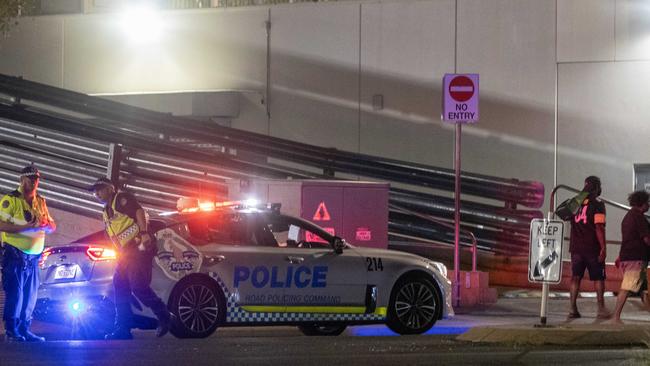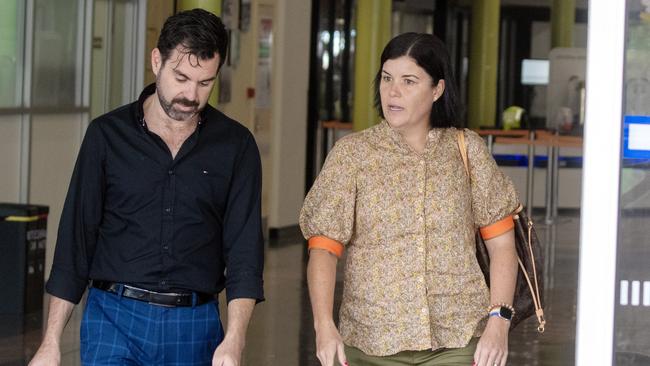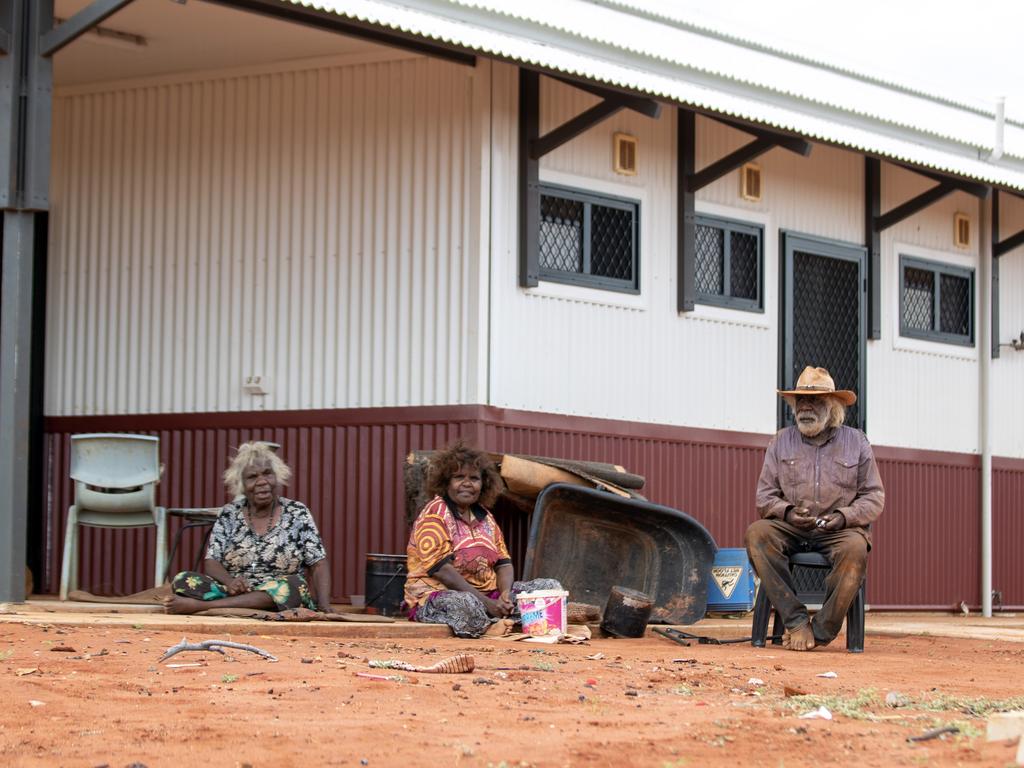Data reveals Alice Springs’ assault rate four times national average
As people try to get alcohol however they can before temporary grog bans in Alice Springs, the shocking rate of crime there has been revealed.

The rate of physical assaults reported in Alice Springs is more than four times the national average and higher than anywhere else in the Northern Territory, data analysis shows.
Police are bracing for the crime rate to worsen before it eases, warning that temporary grog bans announced in the town this week could result in more break-ins and assaults as people try to get alcohol however they can.
Chief Minister Natasha Fyles has “expressed” to the Territory’s police commissioner that the 40 extra police officers diverted to Alice Springs in November in response to the growing crisis needed to stay in the town for the foreseeable future.
Her plea follows revelations that business owners were considering a class action against the Territory government for damages incurred by unrelenting break-ins, thefts and property damage.
Major events are also being axed in response to the issues facing the town, with the Australian Junior Motocross championship – an event that was four years in the making and due to take place in July – cancelled on Friday.

A comparison of the latest Australian Bureau of Statistics data with figures from the NT Police Fire and Emergency Services show a town buckling under one of the worst crime waves in the country, with almost one in 10 people in Alice Springs reporting they had been physically assaulted between December 2021 and last November.
Nationally, the percentage of people who experience physical assault each year has remained at between 2 per cent and 3.1 per cent since 2008. The most recent ABS figures for the 2020-21 financial year showed 2 per cent of the population reported an assault over the 12-month period.
Other towns across the Territory, including Katherine and Tennant Creek, reported high rates of physical assault last year, at 7.3 per cent and 8.7 per cent respectively, according to police. However, 9.2 per cent of the Alice Springs population was assaulted and another 6 per cent was subjected to domestic violence.
The town also experienced double the number of reported break-ins compared to the national average and more than three times the alcohol-related assaults than Darwin.
Those rates are even starker when compared exclusively to Sydney and Melbourne, where data from the NSW bureau of crime statistics and Victorian crime statistics agency shows the rates of assault were under 2.1 per cent.
NT Police Association president Paul McCue said the figures demonstrated the pressures police were dealing with, and said a review was needed into Territory policing to ensure there were enough staff and resources.
“The last wide-ranging resource review of NT Police was undertaken a decade ago. Since then, the NT government has added just 100 additional frontline workers to the force,” he said.
“The number of resignations and retirements has skyrocketed to above 10 per cent annually and recruitment is barely meeting attrition.”
But a spokeswoman for the NT government said on Thursday that more resources had been delivered to support police and frontline workers and that 120 recruits were being trained to become officers in the Territory.
In a survey conducted by the police association in August, more than 90 per cent of officers said there weren’t enough police to do the job expected of them, and almost 80 per cent ranked the morale of the force as low or very low.
Alice Springs mayor Matt Paterson said the difference in crime rates between Alice Springs and the rest of the country made him “incredibly sad”, but he welcomed Ms Fyles asking for extra police officers to stay in the town.
“It doesn’t surprise me when they’re so high … imagine if it was happening in Melbourne or Sydney, it would blow your mind,” he said.
“People right now are pretty anxious. The government needs to put restrictions back for Stronger Futures, it was really working. That’s the only way.”
The Stronger Futures legislation was first put in place in 2012 and enforced alcohol bans in remote Aboriginal communities in the Territory, but expired last July.
Since then, the Territory has moved to an “opt in” measure, which Ms Fyles said had worked for some communities.
“We have seen a number of communities opt in … Other community leadership that we have consulted with have said they don’t want to opt in, it is a legal product,” she told the ABC on Friday. “But people then say ‘you didn't talk to the right person’ … that is why there has been an idea for communities if they wish to take a ballot so that everyone over 18 can have their voice heard on this issue. ”







To join the conversation, please log in. Don't have an account? Register
Join the conversation, you are commenting as Logout